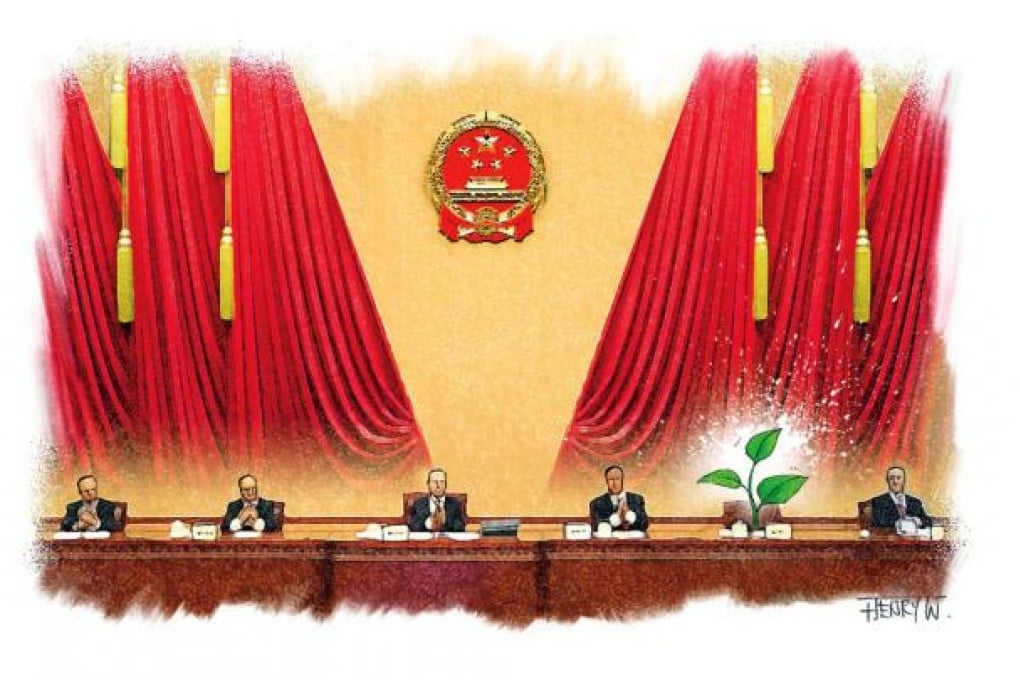Seeds of change in NPC and CPPCC
Isabel Hilton says NPC delegates can best address growing public dissatisfaction over China's environmental policy failures by becoming powerful champions of the cause

Delegates to China's National People's Congress and the Chinese People's Political Consultative Conference this week, can hardly avoid the realisation that they are at a pivotal moment in China's growing environmental crisis: either the government acts with a rigour and effectiveness it has not shown to date, or China's long period of growth could crash into environmental buffers.
Since the NPC's last session a year ago, the country's environmental deterioration and concomitant public anger over air, water and soil contamination have reached unprecedented levels. So heated has the popular response become that newspapers such as the Global Times have been moved to comment that the government must face up to the crisis, if only to defuse the tensions that threaten both social stability and any relationship of trust between citizens and the government.
Things are bad. Even now, there is little sign of the drastic action required to make China's capital breathable again. As the nearly 3,000 delegates packed their bags for Beijing, what help can China's suffering citizens expect from the NPC?
The NPC tends to be dismissed internationally as just a rubber stamp parliament. Certainly, a parliament that meets for just two weeks once a year can hardly be held up as a leading example of vibrant government. But in China's shifting political and social landscape, the environmental crisis offers the NPC a real opportunity to bid for credibility with the people. It is not completely without power and, in this moment of public anger, it offers a platform for citizens' concerns to be raised.
For China's increasingly sophisticated civil society, the NPC and CPPCC do present a rare opportunity in China's closed political system to lobby power peacefully, constructively and legitimately. The NPC can be a channel for policy proposals: last year's session stimulated a flurry of such proposals from green organisations. The presence in the NPC and CPPCC of some people with a well-grounded understanding of the environmental crisis gives non-governmental organisations at worst a sympathetic hearing, and, at best, some action.
Last year, for instance, CPPCC member Wan Jie and NPC deputy Ding Liguo put forward a proposal to ban shark fin from official banquets. Wan Jie is both a businessman and a director of the Alxa SEE Ecological Association, an environmental protection organisation that, among other activities, produces policy papers for NPC and CPPCC members to try to influence government policy. A proposal was put forward and shark fin is currently off the official menus. This was undoubtedly more due to incoming president Xi Jinping's austerity drive, but Wan's CPPCC efforts were important both in making the case and preparing the ground.
In another example of civil society input, last year, the president of the Chengdu Bird Watching Society helped two NPC deputies format amendments to the Environmental Impact Assessment Law that addressed major flaws in China's environmental governance. This kind of detailed policy work makes an important contribution to a difficult aspect of China's crisis - the implementation of laws and regulations. How much of an impact this work has depends on how seriously the government is obliged to take it.